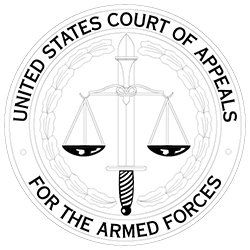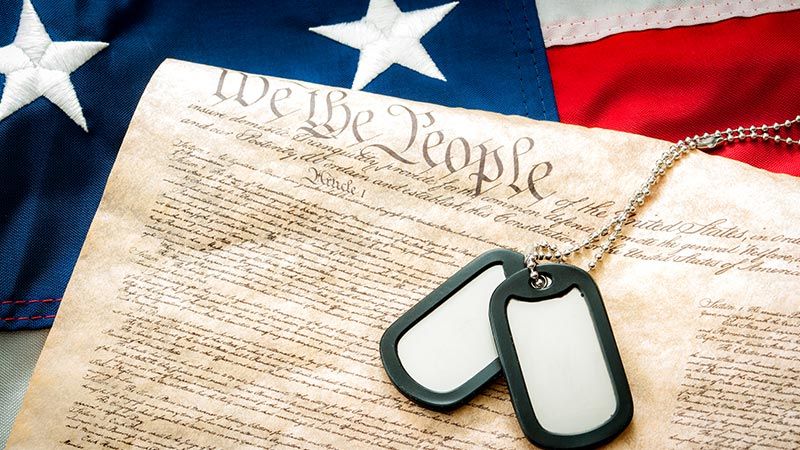Military Justice Defense
Ms. Mitchell represents the gold standard in military justice. As the Army’s first Judge Advocate to serve as a prosecutor, defense counsel, Special Victims Counsel, appellate attorney, and Law Instructor, Ms. Mitchell brings to your case a wealth of knowledge, experience, and perspective that few attorneys can match. She defends military service members in appeals of their courts-martial results, and at trial, against all kinds of charges under the UCMJ. Ms. Mitchell received specialized training in the investigation and litigation of sexual assault, and is especially skilled in defending against sexual assault charges involving mental, drug, or alcohol-induced “incapacitation.” Ms. Mitchell will work closely with your detailed military defense counsel, if you have any, to get the best possible outcome for your case.
Court-Martial
A general court-martial is a felony level prosecution, usually pursued for commissioned officers and any crime that is punishable by more than a year of confinement or death. If you are found guilty, you will have a federal felony conviction for the rest of your life. In addition, officers are subject to dismissal from the service, while enlisted members are subject to dishonorable discharge. A dismissal or dishonorable discharge from service results in a complete loss of benefits, including retirement pay if you are retirement eligible. You can also be sentenced to confinement, potentially for the rest of your life. With charges such as premeditated murder, you may even face the death penalty. There may be additional consequences as a result of a conviction, such as sex offender registration if convicted of a sex crime, deportation for a foreign national accused, or a permanent prohibition on possession of firearms if the crime involved domestic violence.
A special court-martial is a misdemeanor level trial. A guilty finding means, in most cases, you will have a federal misdemeanor conviction for the rest of your life. Enlisted personnel are subject to a bad-conduct discharge. While a bad-conduct discharge is not as bad as a dishonorable discharge, it will still result in the loss of many benefits. Enlisted personnel can also be sentenced to confinement for up to one year and be reduced in rank. Forfeiture of pay is a penalty available for both officers and enlisted personnel. As with a general court-martial, there may be additional consequences as a result of a conviction.
Summary courts-martial are often referred to as “glorified Article 15” proceedings. While the hearing is trial-like, it is not conducted by a military judge. Instead, a summary court-martial is conducted by a commissioned officer who is not your commander. Unlike a general or special court-martial, guilty findings do not result in convictions. However, most junior enlisted can be sentenced to confinement for up to 30 days. You have fewer due process rights with a summary court-martial. While you get the opportunity to consult with a military defense counsel, you are not entitled to representation by an attorney at the court-martial; you are expected to defend yourself. Because of this, summary courts-martial are not as high of a priority for military defense counsel. Therefore, it is always a good idea to seek the advice of an experienced attorney who will give your case top priority. That attorney is Ms. Mitchell.
Courts-Martial Appeals
After the court-martial, your case is not over. You have the right to appeal the results of your case to your service’s Court of Criminal Appeals, then potentially the Court of Appeals for the Armed Forces, and if the Court of Appeals for the Armed Forces granted review of your case, you may petition the United States Supreme Court. An accused with an approved sentence of death is entitled to two automatic appeals, one automatic appeal to the Court of Criminal Appeals, and a second automatic appeal to the Court of Appeals for the Armed Forces.
Ms. Mitchell served for four years at the Army’s Government Appellate Division as appellate counsel, Branch Chief, and Acting Deputy Chief. She has continued to represent servicemembers from all services in appealing their courts-martial results. She has successfully litigated hundreds of cases before the service courts of criminal appeals and Court of Appeals for the Armed Forces, several of which were high-profile. She was rated as the Army Government Appellate Division’s most prolific author and best practice judge. Ms. Mitchell knows how to spot issues, write briefs, and successfully argue your case.
Nonjudicial Punishment
Nonjudicial proceedings are covered by Article 15, Uniform Code of Military Justice, and are frequently referred to as Article 15, Captain’s Mast, or NJP. If you are being offered nonjudicial punishment, you must take it seriously. While a guilty finding will not result in a conviction, you could be punished with extra duty, forfeiture of pay, reduction in rank, and restrictions on your freedom of movement. You may also have a permanent blemish on your military record, which can lead to additional consequences, such as failure to promote or even administrative separation. A nonjudicial punishment proceeding involves a hearing with your commanding officer. As with a summary court-martial, you have fewer due process rights, and you are expected to defend yourself. However, if you accept the offer of nonjudicial punishment, you are entitled to consult with an attorney about your case, and have a personal representative at the hearing. That personal representative should be an experienced lawyer like Ms. Mitchell.
Under some circumstances, you can refuse the offer of nonjudicial punishment and demand a court-martial! Refusing an offer of nonjudicial punishment may be appropriate when the evidence is weak, evidence may be suppressed at trial, or the allegation fails to state an offense. However, refusing an offer of nonjudicial punishment carries some risks, most notably a federal conviction if you are found guilty at a court-martial. Ms. Mitchell has successfully advised several clients on refusing offers of nonjudicial punishment. If you have been offered nonjudicial punishment, contact Ms. Mitchell! She can review your case and provide sound legal advice which will enable you to make fully informed decisions.
Adverse Administrative Actions and Appeals
Adverse administrative actions can be military career-ending events. Ms. Mitchell provides knowledgeable, experienced, strategic legal representation for the following:
- Administrative reprimands – an administrative reprimand placed in your permanent personnel file can mean the end of your career. You are not likely to be promoted, and may even face involuntary administrative separation. Although administrative reprimands have significant consequences for your career, you have very few due process rights and very short deadlines for rebuttals, usually about a week. Assisting clients with rebutting administrative reprimands is usually a low priority for military defense counsel. Military defense counsel may even refer you to a military legal assistance attorney, typically a Judge Advocate who is new to the military, and therefore, lacks the expertise necessary to help you successfully rebut the reprimand.
- Involuntary administrative separation/show cause boards/boards of inquiry – while you won’t face the possibility of conviction or confinement, you will face the possibility of being fired from the military and separated with an Honorable, General Under Honorable Conditions, or Other Than Honorable discharge, which can result in the loss of benefits. You can be involuntarily separated for a variety of things: misconduct, criminal conviction, unsatisfactory performance, failing to meet physical fitness or weight standards, drug or alcohol rehabilitation failure, or having a physical or mental health condition that interferes with your ability to perform your duties. Your entitlement to a board depends on how much time you have in service and the recommended characterization of service. If you are entitled to a board, then you are entitled to legal representation at the hearing, which is a trial-like process, but the standard of proof is only a preponderance of the evidence, not beyond a reasonable doubt.
- Promotion review boards – senior enlisted personnel and most officers are subject to additional scrutiny of their personnel files when selected for promotion. Almost any record of substantiated misconduct will result in your promotion being delayed, and could also result in being removed from the promotion list.
- Grade determination boards – particularly for service members preparing to retire, almost any record of substantiated misconduct in your personnel file will be reviewed by a grade determination board, which will decide if you deserve to retire at the grade you currently hold. Frequently, those with a history of substantiated misconduct are administratively reduced to a lower rank, resulting in a lower retirement pension. Over time, this loss can add up to hundreds of thousands of dollars.
- Discharge review boards (DRB) – when separating from the military, it is vital that the reason for separation and your characterization of military service be accurately reflected on your DD 214 (Certificate of Release or Discharge from Active Duty). If you believe either the reason for separation or characterization of service is incorrect, you can apply to your service’s DRB for a review of your case. A DRB can upgrade your discharge and/or change the reason for your separation. However, a DRB cannot change a reenlistment code, restore you to active duty, or review a punitive discharge from a general court-martial. DRBs have a time limit of 15 years from the date of discharge. While veterans can apply to a DRB on their own, it is better for veterans to seek help with a DRB application from an experienced attorney like Ms. Mitchell.
- Boards for correction of military records (BCMR) – sometimes mistakes are made in documenting your military record. Sometimes there are injustices in your military record. Both can prevent you from receiving the benefits you deserve. Your service’s BCMR has the ability to correct these mistakes and injustices. A BCMR can review and upgrade discharges, including punitive discharges from a general court-martial, change the reason for discharge, reinstate service members to active duty, change reenlistment codes, remove erroneous or unjust performance evaluations, remove disciplinary actions from your record, or overturn a service agency’s adverse decision against you, such as a military law enforcement agency’s decision to “title” you, or an Inspector General’s decision to substantiate an allegation of misconduct against you. BCMRs have a strict time limit of 3 years from the date the error or injustice occurred, or the date you discovered the error or injustice, though occasionally a BCMR will waive the time limit for “good cause.” You must also show you exhausted all available administrative remedies before applying to the BCMR for relief. As with DRBs, veterans can apply to BCMRs on their own. But, it is better for veterans to seek help with a BCMR application from an experienced attorney like Ms. Mitchell.
You have the right to obtain advice from an attorney who has your best interests in mind as you go through these proceedings. Hire an attorney with experience by contacting the Law Office of Tami L. Mitchell.


















